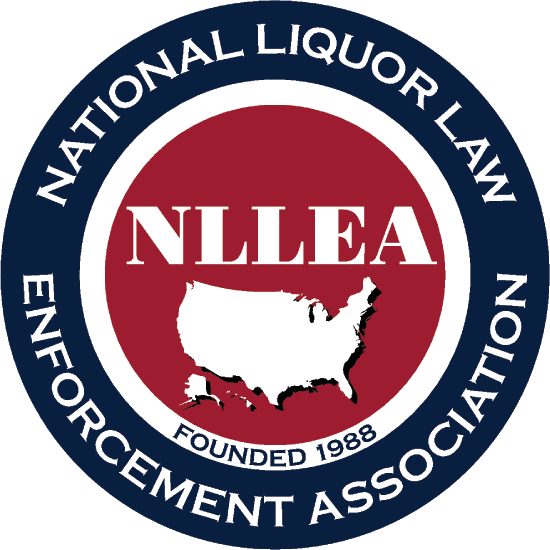Publications
Publications
NLLEA projects/grant reports
In 2013 the Center for Alcohol Policy published a report written by Pat Gagliardi that expressed concern about the impact of reduced funding for state alcohol regulation. The 2024 updated report concludes a noticeable trend of less funding dedicated to state alcohol regulation. When inflation and population growth are considered, funding has not kept pace with current needs. Complexities in the state regulatory system are increasing with legalized cannabis and federal laws in conflict with states, making enforcement
Carrie ChristofesAlcohol Compliance and Capacity Assessment: A Maine Spotlight
The goal of state alcohol regulation is to protect public health and safety, establish an efficient mechanism to collect taxes and revenues, eliminate unfair and illegal marketing or trade practices, and balance interests of all stakeholder groups engaged and interested in alcohol regulation.
Carrie ChristofesAlcohol Sales and Deliveries
This document is intended to provide background and guidance on best practices for the enforcement of laws related to sales and delivery of alcohol both during and after the COVID-19 pandemic.”
Carrie ChristofesCASE STUDY
The National Highway Traffic Safety Administration (NHTSA) funded the National Liquor Law Enforcement Association (NLLEA) through a cooperative agreement to review successful alcohol law enforcement (ALE)/State Highway Safety Offices (SHSO) partnerships and create a case study for the benefit of ALE agencies in other States. This resource will provide strategies for applying to State highway safety office funding, and other funding, partnerships and collaborations to support respective ALE activities within that state.
Carrie ChristofesSales to Intoxicated Patrons, Source Investigations, and Place of Last Drink
During impaired driving crackdown periods, law enforcement traditionally utilize enforcement strategies that focus directly on impaired drivers who are already on the road. Source Investigations are conducted by law enforcement agencies to reduce alcohol-impaired driving crashes that may result in injuries and/or deaths
Carrie ChristofesData Driven Decision-Making: A Case Study of Implementation and Use of projectR.A.B.I.T. in Chittenden County, Vermont
Data Driven Decision-Making: A Case Study of Implementation and Use of projectR.A.B.I.T. in Chittenden County, Vermont August 2021
Carrie ChristofesPlace of Last Drink (POLD)
Place of Last Drink (POLD): A Case Study of Implementation of POLD by the Vermont Department of Liquor and Lottery
Carrie ChristofesPlace of Last Drink (POLD): A Case Study of Vermont’s Implementation of POLD using an Implementation Framework
Place of Last Drink (POLD): A Case Study of Vermont’s Implementation of POLD using an Implementation Framework
Carrie Christofes
NHTSA Report Year 4: Place of Last Drink (POLD): Opportunity for Expanding POLD Investigations to Alcohol-Involved Violent Crime Incidents
Carrie ChristofesExamination of Implementation of Place of Last Drink Using a Framework of Implementation Components
Over 13,500 deaths were attributed to alcohol-impaired driving in 2022. Driving under the influence (DUI) of alcohol is a serious public health problem, causing injury, death, and property damage on U.S. roadways. Overconsumption of alcohol is often a result of overservice at licensed alcohol establishments, but efforts to address overservice at bars and restaurants have had little to no success.
Carrie ChristofesThe Importance of ALE
As part of the National Liquor Law Enforcement Agency’s’ (NLLEA) mission, we strive to increase understanding of the scope, role, and authority that Alcohol Law Enforcement (ALE) agencies possess in reference to regulating and enforcing alcohol control laws. Who is the ALE in your state?, What does ALE do?, Why is there a need for ALE? and What can you do to assist in reducing alcohol issues to include impaired driving and youth access?
Carrie ChristofesPOLD Frequently Asked Questions
NLLEA POLD Frequently Asked Questions “POLD” data refers to identifying the place of last drink from subjects who have been identified by law enforcement or medical staff as having been involved in an alcohol related incident. The incidents can range from motor vehicle crashes to DUI/DWI stops to investigations involving assaults, and minors in possession.
Carrie ChristofesPOLD Report 2019
The long-term goal of NLLEA is to establish a POLD program that can be implemented by ALE agencies nationwide. The purpose of this project is to assist the NLLEA in demonstrating that POLD data can be collected and utilized by local and state law enforcement agencies to prevent impaired driving through proactive education and enforcement at licensed establishments with a history of overserving persons who then drive after drinking.
Carrie ChristofesARE RMS Functional Specifications
Records Management Systems of Alcohol Regulatory Enforcement (ARE) Agencies: Functional Specifications
Carrie ChristofesAlcohol Regulatory Enforcement Records Management Systems
The National Liquor Law Enforcement Association (NLLEA), in collaboration with the National Alcohol Beverage Control Association (NABCA), conducted a nationwide systematic review of the records management systems of Alcohol Regulatory/Enforcement (ARE) agencies, the data collected therein, and the responsibilities, coordination, and priorities of ARE agencies throughout the United States. ARE data is important to establish the nexus between the public health and safety rationale to alcohol laws and regulations.
Carrie ChristofesRMS of ARE Version II Functional Specifications
The purpose of this publication is to aid state and local agencies responsible for alcohol licensing and enforcement in assessing, upgrading, or replacing their Alcohol Regulatory Enforcement (ARE) and Licensing Records Management Systems (RMS) to monitor compliance. The intended audience for this document is any individual or agency involved in procuring, developing, implementing, or supporting a licensing and enforcement management system to support process, training, compliance, and violation management.
Carrie ChristofesUnderstanding the Role of Alcohol Regulatory Enforcement in Order to Form Community Partnerships
By working together, community coalitions and Alcohol Regulatory Enforcement (ARE) agencies can create safer and healthier communities for all. Understanding the various regulations and laws governing the production, distribution, and sale of alcohol can be challenging. ARE can assist by sharing their knowledge, experience, and expertise in navigating the complexities of alcohol regulation.
Carrie Christofes